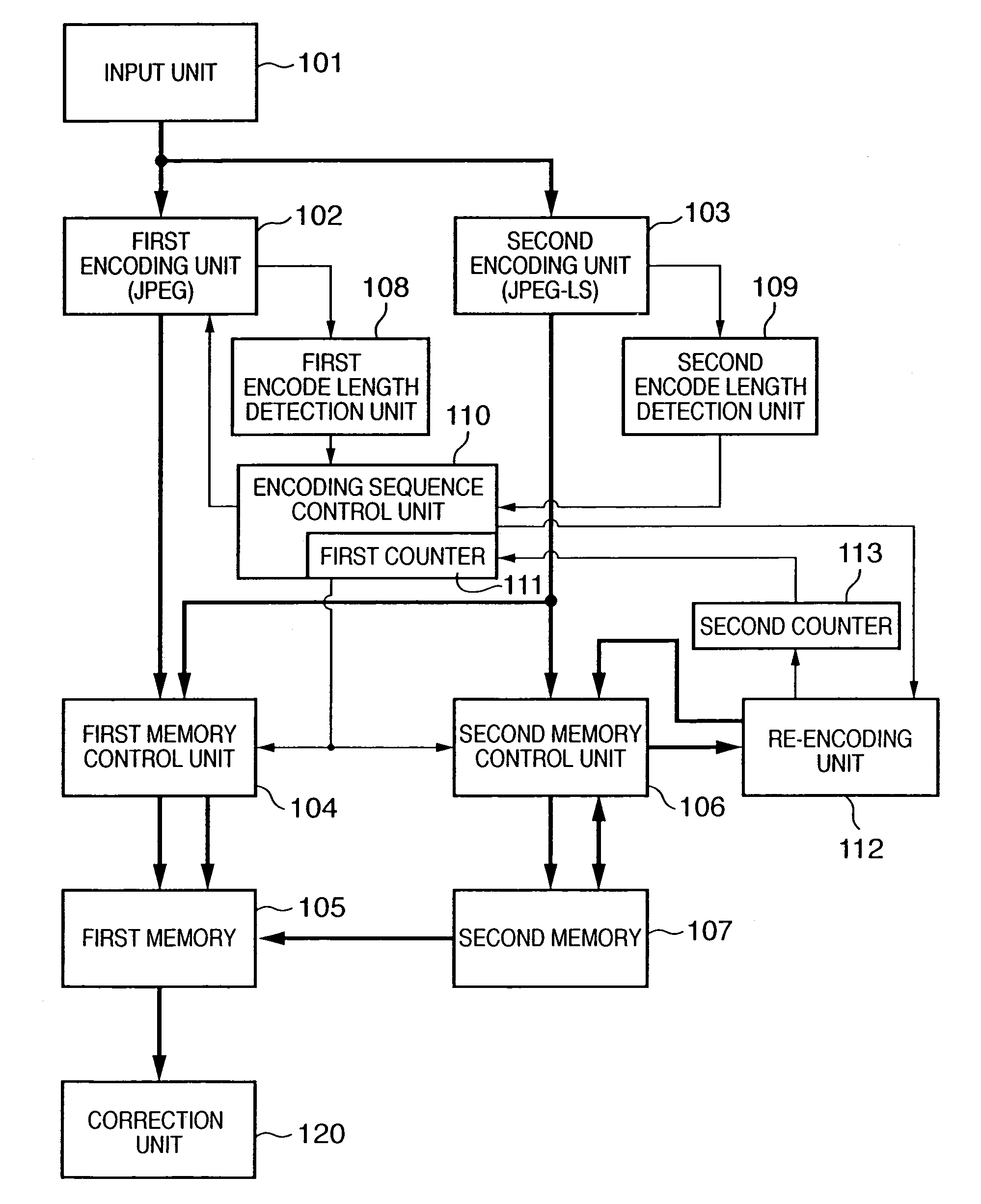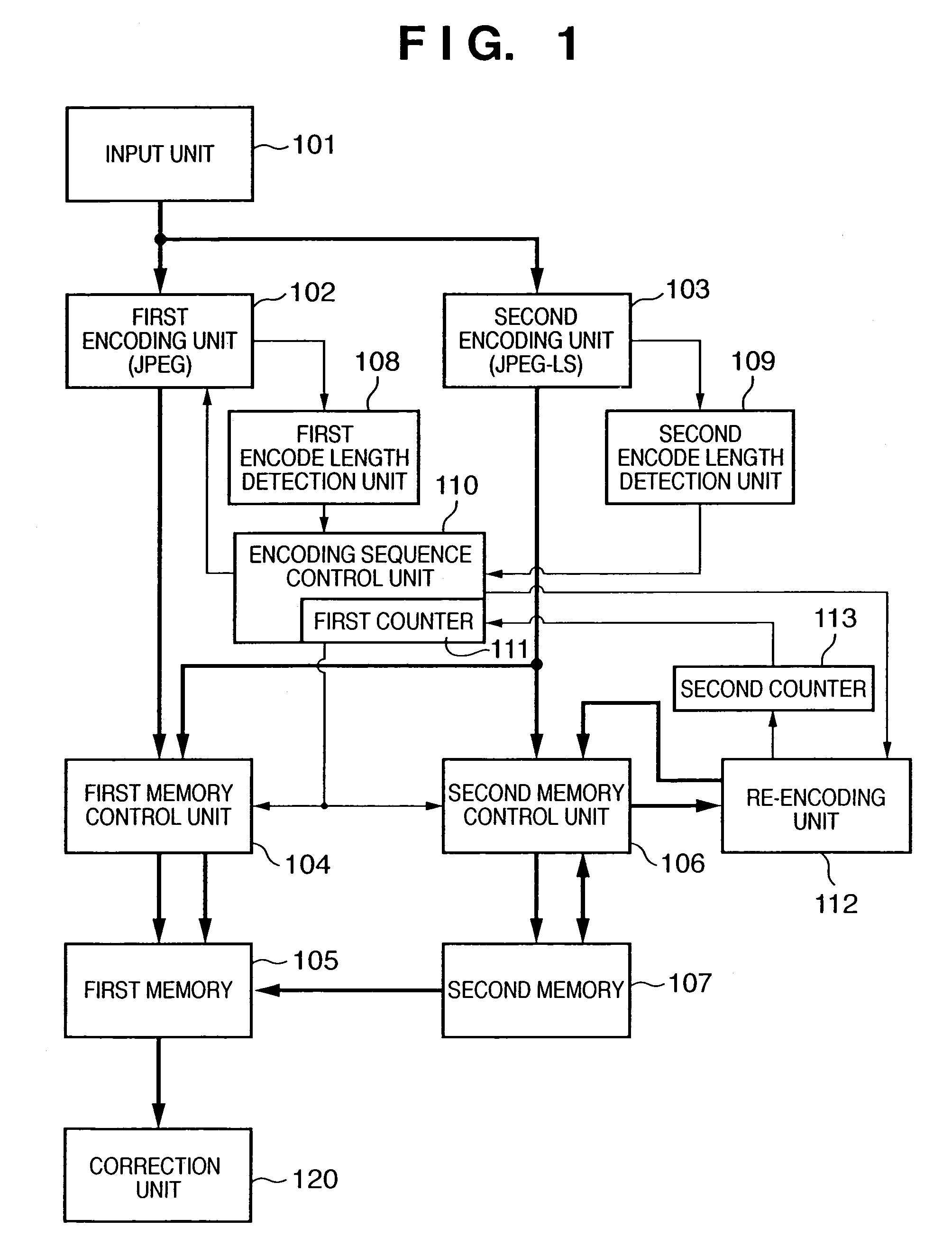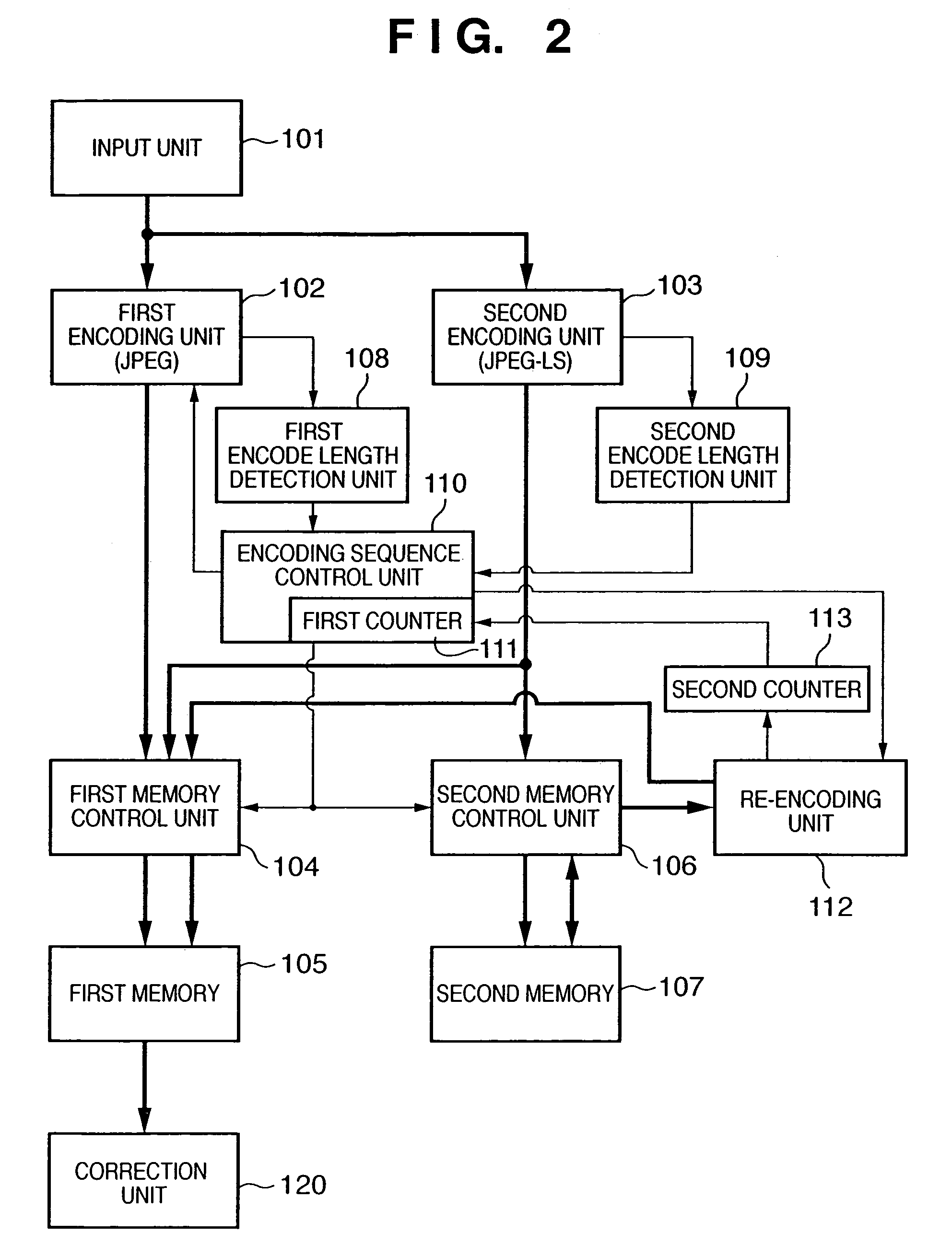Image encoding apparatus and method, computer program, and computer-readable storage medium
a technology of image data and encoding apparatus, applied in the field of encoding image data, can solve the problems of document reading at least two times, document data falling within the target code amount without prescan, poor efficiency, etc., and achieve the effect of suppressing the generation of block nois
- Summary
- Abstract
- Description
- Claims
- Application Information
AI Technical Summary
Benefits of technology
Problems solved by technology
Method used
Image
Examples
second embodiment
[0196]The correction unit 120 in the above-described first embodiment unconditionally converts isolated losslessly encoded data into lossily encoded data.
[0197]It should be noted that JPEG-LS is employed as lossless encoding in the embodiment. For this reason, when the code amount of isolated losslessly encoded data is equal to or smaller than a predetermined threshold, the pixel block is a character / line image or the like at high possibility. This situation will be easily understood from a case wherein characters (the name of a photographer and the date and time) and the like are synthesized in a natural picture.
[0198]In this situation, if isolated losslessly encoded data is converted into lossily encoded data by JPEG encoding, the sharpness of a character / line image may be lost, degrading the image quality. To prevent this, according to the second embodiment, isolated losslessly encoded data is conditionally converted into lossily encoded data.
[0199]An encoding unit 6 can take any...
third embodiment
[0203]In the second embodiment, isolated losslessly encoded data is conditionally converted into lossily encoded data. In the third embodiment, isolated lossily encoded data is also taken into consideration.
[0204]FIG. 26 shows the arrangement of an encoding unit 6 according to the third embodiment. The encoding unit 6 in FIG. 26 is different from that in FIG. 1 in that a correction unit 120 also refers to a second memory 107. The third embodiment is based on FIG. 1, but may also be based on FIG. 2 or 14. In short, the correction unit 120 suffices to be able to access a memory (the second memory 107 in FIG. 2 or the third memory 118 in FIG. 14) which stores losslessly encoded data.
[0205]As described in the second embodiment, a character / line image often exists in a natural picture. To the contrary, a natural picture at the size of a pixel block (8×8 pixel size in the embodiment) serving as an encoding unit hardly exists isolatedly in a character / line image.
[0206]Such isolated lossily...
PUM
 Login to View More
Login to View More Abstract
Description
Claims
Application Information
 Login to View More
Login to View More - R&D
- Intellectual Property
- Life Sciences
- Materials
- Tech Scout
- Unparalleled Data Quality
- Higher Quality Content
- 60% Fewer Hallucinations
Browse by: Latest US Patents, China's latest patents, Technical Efficacy Thesaurus, Application Domain, Technology Topic, Popular Technical Reports.
© 2025 PatSnap. All rights reserved.Legal|Privacy policy|Modern Slavery Act Transparency Statement|Sitemap|About US| Contact US: help@patsnap.com



